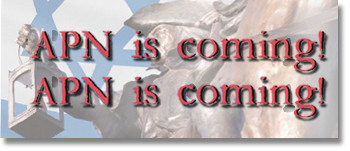Please join us for a briefing call with Barbara Slavin of the Atlantic Council, an expert on Iran. Ms. Slavin will share her analysis of the current negotiations with Iran on its nuclear program, and help us beter understand the state of affairs as the negotiating parties approach the November 25 deadline.

The What Would Leibel Do (WWLD)? Awards Dinner
Sunday, January 11, 2015
Named for long-time APN Board Member Leonard "Leibel" Fein, who passed away in August, the event will be
Sunday, January 11, in Boston.
Sidney Topol will receive the inaugural "Leonard Fein Justice Award," and Rabbi Toba Spitzer the "Elizabeth
Wyner Mark Peace Award."
Invitation to Come
The underlying cause of the current crisis is to be found in the inherent dysfunctionality of Israeli rule in East Jerusalem
WHAT POSSESSES hundreds, sometimes thousands of Palestinian youths to clash nightly with Israeli police? That is a
question that official Israel, and most particularly Prime Minister Benjamin Netanyahu, has neither asked nor
answered. Why? Because doing so would challenge his axiomatic faith in “united Jerusalem” – a Jerusalem that
doesn’t exist.
THE PORTION OF HAYYEI SARAH: GENESIS 23-25:18
This portion of Genesis is an end of life saga, but at the same time it is a secret testimony, a message delivered across the ages, as to what it means to perpetuate life on a promised land, how one can make it an eternal life on the land. It is momentous and dramatic, focusing both on the burial of the old generation and the continuity of the next generation, with Isaac’s marriage to Rebekah. None of these changes, however, guarantee any perpetual relationship to the land. The secret to that lies in the nature of their dealings with their neighbors.
MAKING PEACE POSSIBLE: Bringing Together an American Jewish Response
Three prominent national Jewish community leaders discuss the path to Israeli-Palestinian peace and the current
challenges to Israel’s Jewish and democratic values.
December 18, 2014, 7pm
Washington, DC – Americans for Peace Now (APN) strongly condemns today’s terrorist attacks in Tel Aviv and the West Bank. Coming in the context of the extremely volatile situation in Jerusalem and this past weekend’s controversial killing of a Palestinian citizen of Israel by Israeli police, these attacks signal a potentially dangerous expansion and escalation of tensions and violence.
For the sake of Israelis – both Jewish and Palestinian – and for Palestinians in the West Bank, Gaza, and East Jerusalem, a further descent into violence and conflict must be prevented. This escalating crisis – between Israel and the Palestinians and within Israeli society itself – once again sends a resounding message to Israelis and Palestinians, and their respective leaders: allowing the Israeli-Palestinian conflict to fester, while occupation deepens and all hope for a political horizon via a negotiated solution are destroyed, will only result in more pain and suffering for Israelis and Palestinians alike.
This week, Alpher discusses whether the unrest in Arab East Jerusalem is just a Palestinian-Israeli issue or is it also an internal issue involving the Arab citizens of Israel; whether the unrest accomplished anything for the Palestinian cause; how committed is the Arab-Israeli to the anti-Jewish demonstrations that broke out on Saturday; how does all this affect the broader Palestinian issue, and particularly the Fateh-Hamas/West Bank-Gaza reconciliation process; the Netanyahu government's apparent fraying;
...Keep the status quo
By tradition, the binding of Isaac – the Akedah – which occurs in this week’s Torah portion, is held to have taken place on the site known today as the Temple Mount. During the last few days, as tensions in Jerusalem reached new heights over the Temple Mount, I have been reading the portion and thinking about the meaning the Temple Mount has for Jews – and about how sad it is that, rather than respecting it as a place of peace, sacred to both Muslims and Jews, extremists on both sides choose this site to fan the flames of holy war.
Despite the Republican win, U.S. policy on the Israeli-Palestinian conflict over the next two years depends first and foremost on President Obama, not Congress. But will he finally stand up to Netanyahu?
Tuesday's election delivered the Senate into Republican hands and gave them the largest House majority in 80 years. What impact will this election have on America’s policy vis-à-vis Israel and the quest for Israeli-Palestinian peace?
Washington, DC – Americans for Peace Now (APN) strongly condemns today’s terrorist attack in
Jerusalem, in which a Palestinian motorist rammed his van into a crowed of civilians at the seam-line between East
and West Jerusalem, killing an Israeli policeman and injuring several bystanders. This is the second such
attack in Jerusalem in two weeks.


